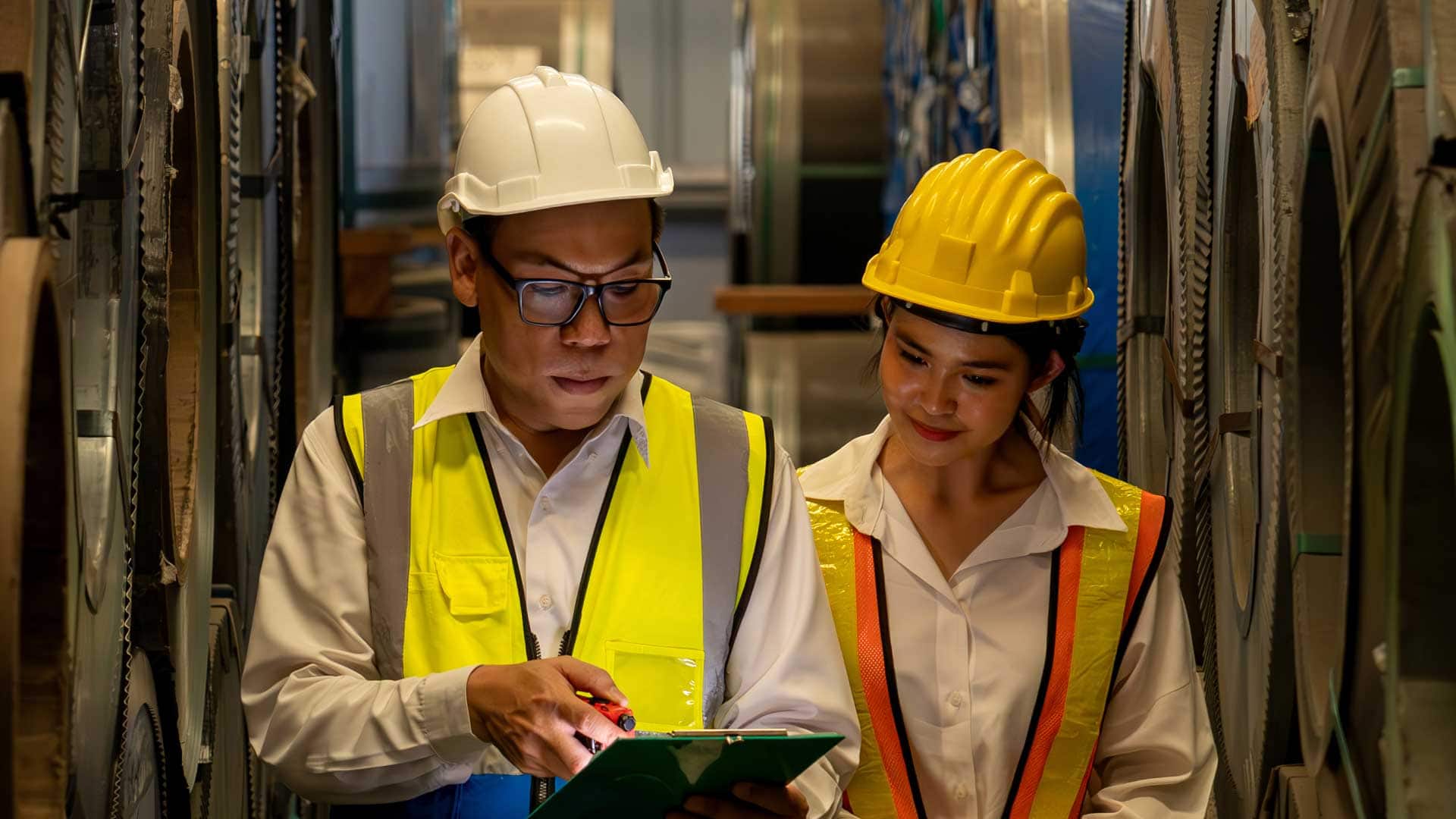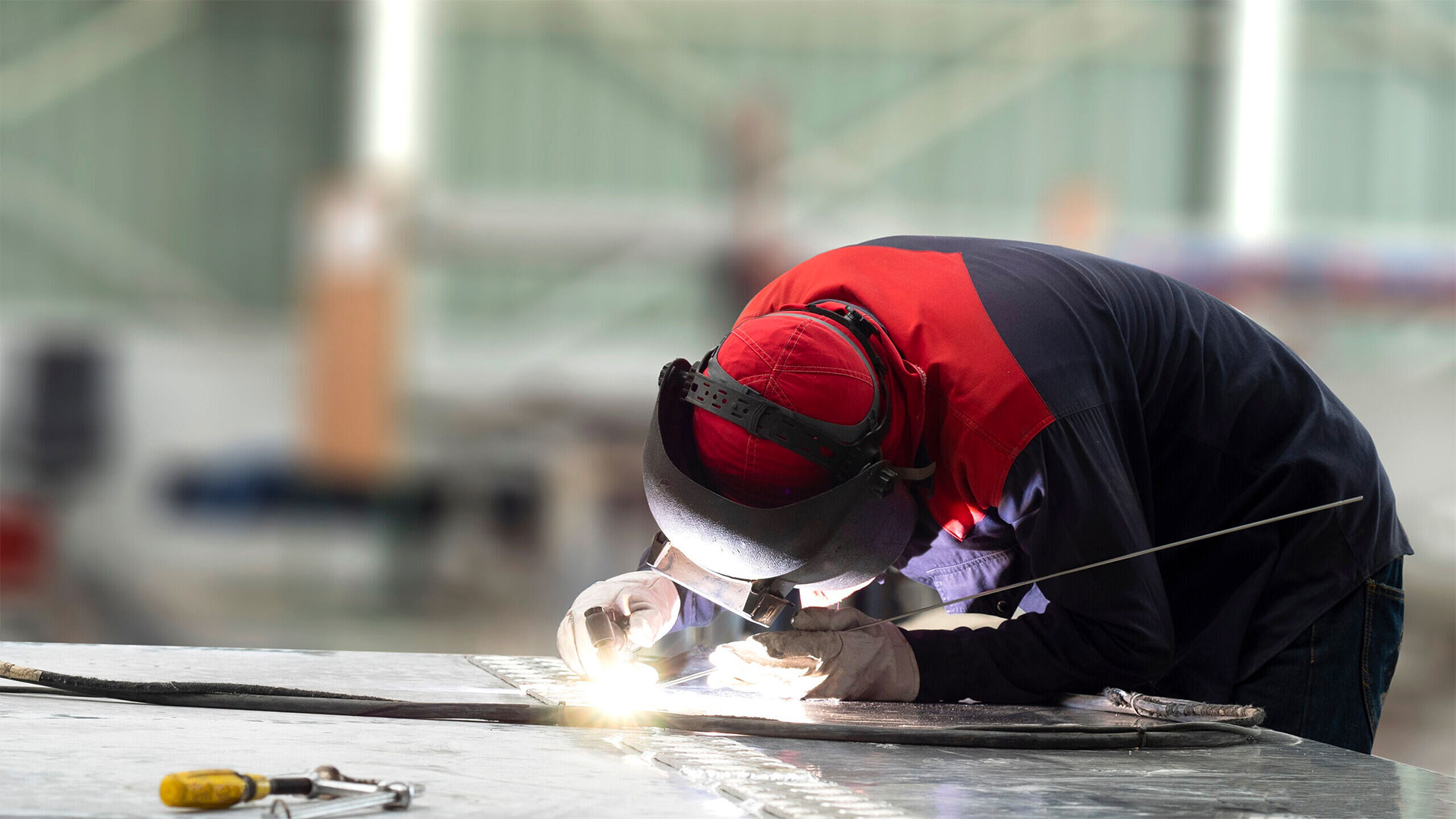With a market size of $12 billion spread across over 800 companies, the steel tank industry remains a pivotal component of the domestic manufacturing supply chain. Through breakthrough developments in welding, corrosion prevention, and innovative coating processes, our industry has been able to develop high-skilled American jobs that produce infrastructure essential to the storage and transportation of petroleum, biofuels & renewable fuels, agricultural feedstocks, food, water, wastewater, and chemicals.
Amidst concerns about increased greenhouse gas emissions, the steel fabrication industry is proud to have served at the forefront of implementing sustainable manufacturing processes and promoting environmentally friendly practices in the usage of our products. As a result, technological advances in steel production have reduced the energy intensity attributed to its manufacturing processes by 27% and have decreased applicable CO2 emissions by 33% per ton of steel produced since 1990. These technological advances provide a unique opportunity to promote continued investment in the sustainable steel fabrication industry. By doing so, Congress can protect the storage and distribution of food, water, fuel, and chemicals while minimizing the United States’ carbon footprint.
Steel Production – Recycling & Reuse
With 80 million tons recycled annually in the United States alone, steel is the world’s most recycled material. For every ton of steel recycled, the following resources are conserved:
- 2500 pounds of iron ore
- 1400 pounds of coal
- 120 pounds of limestone
The energy produced from steel recycling is also sufficient to effectively mine and utilize these resources. The unique characteristics of steel also dramatically reduce its embodied energy, which represents the energy required to manufacture, ship, transport, and produce a given product. Through steel’s high recyclability, reduced energy intensity, reprocessing of manufacturing by-products, and its inherent durability and strength that contributes to its lifetime value, steel boasts a significantly lower embodied energy level than comparable materials.
Crucially, the steel fabrication industry’s utilization of steel scrap in its manufacturing processes conserves resources while saving on the costs attributed to mining and processing raw ores. Through technological advances in steel manufacturing equipment, the steel fabrication industry is able to utilize an “open-loop” recycling process that enables all available scrap to be delivered to the closest melting furnace. Through this process, which also allows for energy savings on the transportation of scrap, new steel products contain at least 70% recycled content. This sustainable practice has been extended to steel manufacturers nationwide, with over 20,000 steel consumer goods recycling options in the United States.
Lastly, steel manufacturers also recycle by-products such as mill scale, steel-making slags, water, and processing liquids, all of which are treated and returned to the manufacturing stream. Through these sustainable processes, we are proud to have over 92% of the steel produced in the United States recycled every year.
Maximizing The Lifecycle of Steel Through Increased Infrastructure Investments
STI/SPFA applauds the generational infrastructure funding passed via the Bipartisan Infrastructure Law (BIL), also known as the Infrastructure Investment and Jobs Act (IIJA), in November 2021. STI/SPFA applauds the bill’s allocations for:
- $55 billion – Water Infrastructure
- $47.2 billion – Grid resiliency
- $65 billion – Power and grid infrastructure improvements
- $16 billion – Ports and waterway infrastructure
STI/SPFA stands in strong support of maximizing these critical infrastructure investments while utilizing best practices in asset management and sustainability. In effectively deploying the resources allocated through this legislation, asset managers must consider critical sustainability factors by prioritizing products with the longest service life and lowest lifecycle cost. Given that these steel tanks, if properly protected and maintained, have an indefinite service life that yields the lowest lifecycle cost and most sustainable option, STI/SPFA believes that steel tanks, pipe infrastructure, and related equipment will be crucial to ensuring that IIJA funding enables project owners to receive the highest return on their capital investment so that these projects may last for generations to come. These deployments will bolster our nation’s infrastructure, energy security, and grid resiliency at a time when these assets are most vulnerable.
The sustainable practices utilized in the steelmaking process contribute to its lower lifecycle cost, thereby enabling project owners can effectively capitalize on any IIJA-derived investment. Even after a tank or pipe has met its desired lifespan, the steel contained in the product can be melted down and sold for a high value on the steel scrap market. Steel’s inherent qualities also increase its durability; steel is three times stronger than plastic under external pressures, making it a safer, longer-lasting option than plastic for storage tanks and infrastructure pipes. Steel is also simultaneously more elastic, allowing it to expand and contract without cracking while maintaining an inherent hardness that resists penetration and prevents leakage.
These unique characteristics enable steel fabricators to develop storage tanks and vessels for a variety of use cases while maintaining the underlying sustainability of their products, as steel can be continuously recycled without losing any of these attributes.
Where We Stand
STI/SPFA is committed to promoting the interests of manufacturers of sustainable steel storage tanks, pressure vessels, piping, and pipelines. STI/SPFA champions increased federal investment in sustainable steel tank infrastructure to reduce greenhouse gas emissions while promoting technologies that secure our energy and power systems, protect our nation’s food and water supply, and ensure the safe and efficient transportation of chemicals, food, water, and fuel. STI/SPFA supports legislative actions that:
- Promote sufficient energy sector infrastructure to support both electric and non-electric transportation methods, with no technological preferences
- Champion the steel fabrication’s sustainability practices as a model for industrial decarbonization
- Encourage the adoption of diversified recycling practices tailored to the needs of a given industry
- Support the adoption of steel tanks to transport vital resources across the country and bolsters domestic manufacturing supply chains
Topic
- Advocacy
- Sustainability




